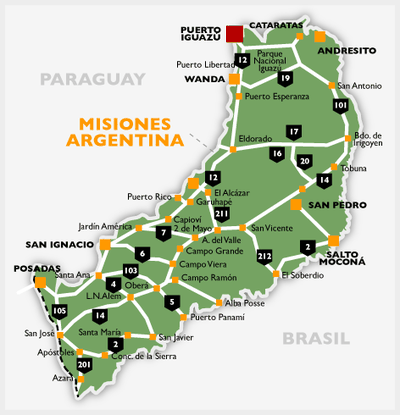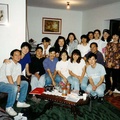My first trip to Argentina was with Kiyo and Rosa. Kiyo would become my advisor and friend during my term in South America. He and his wife invited me to join them on the journey to the Argentine state of Misiones, where they would visit and counsel a scattered group of Nikkei, in this rural province in Argentina as well as the southern section of Paraguay.
Our route would take us by car from São Paulo to the city of Posadas in northeastern Argentina, staying in the home of a Japanese national who was taking a six-month leave of absence in Japan.
Traveling through the Argentine province of Misiones, we stopped at a number of Japanese immigrant settlements. One such settlement was nothing more than a small cluster of ramshackle cabins. These settlements – run-down, unpainted, and falling down – reminded me of the Joad family farm in the movie "Grapes of Wrath," or, perhaps the plantation houses that were home to so many cultures in Hawai'i.
I raised my videocamera to record the images of poverty in a Nikkei community, but Kiyo put his hand on my arm and quietly told me to lower my camera. "Vergonha," he whispered. "Haji." One word was Portuguese, the other was Japanese. Both words mean "shame."
I understood immediately. For these immigrants, their economic condition and the appearance of their homes was an indication of their failure to be successful. And for Japanese, that was perceived to be shameful. The only record of those moments has been kept in my mind all these years. You're seeing that record for the first time here.
We drove further down the road and stopped at a roadside fruit stand. A Japanese family was selling grapes on the side of this two-lane highway. That is, one lane each way. Not too much traffic here. Just large trucks roaring by. We were the only customers for the 30 minutes we were stopped.
I couldn't imagine that their livelihood depended on this roadside stand - and not a fancy one. It looked like the kind of stand that Lucy has in the "Peanuts" comic strip. A few boards nailed together with a sign "The doctor is in." This sign said "UVA." (Grapes).
Kiyo knew this family and wanted to help them out a little, so he asked to buy some grapes. Of course, as is customary to do with a visiting sensei, the family declined and offered to give us the grapes. "No, no. We'll pay." "Are you sure?" Back and forth the conversation went. Though I wasn't involved in the discussion, I understood the ritual.
After another exchange, Kiyo turned to me and asked, "Do you have 15 reais?" The woman was holding out a small bag of grapes. She was asking the equivalent of $15 USD for a not too generous amount of grapes. My instincts, of course, were to say, "Fifteen bucks for that? You gotta be kidding!" Instead, I gave Kiyo the money.
What I learned from my work in South America was that my discretionary spending of a few dollars here and there was life and death for some people. Who was I to quibble about $15? It was after all, intended to be a gift for them. And with the exchange of the grapes for the money, we didn't dishonor them by giving them a handout.
© 2009 John Katagi








